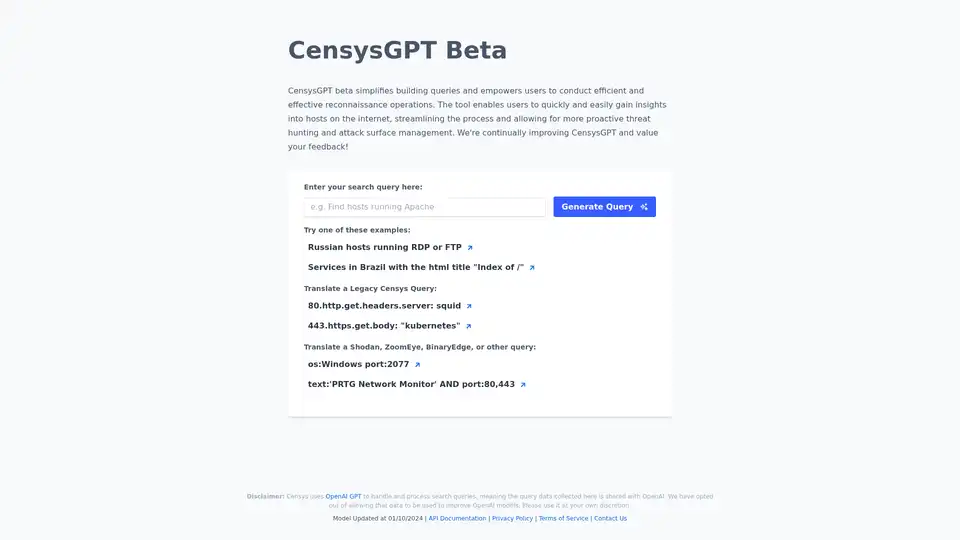
CensysGPT Beta
Overview of CensysGPT Beta
What is CensysGPT Beta?
CensysGPT Beta is an innovative AI-powered tool designed to streamline the creation of search queries for the Censys platform, a leading internet-wide search engine for discovering hosts and services across the internet. By leveraging OpenAI's GPT models, this beta version empowers cybersecurity professionals, researchers, and threat hunters to build complex queries effortlessly. Instead of manually crafting intricate search strings, users can input natural language descriptions, and the tool generates precise Censys-compatible queries. This not only saves time but also enhances the accuracy of reconnaissance efforts, making it easier to uncover potential vulnerabilities, map attack surfaces, and conduct proactive threat hunting.
Launched as a beta, CensysGPT reflects ongoing improvements based on user feedback, ensuring it evolves to meet the demands of modern digital defense strategies. It's particularly valuable in an era where internet-scale data is overwhelming, and efficient querying is key to gaining actionable insights.
How Does CensysGPT Beta Work?
At its core, CensysGPT Beta integrates OpenAI's GPT technology to process user inputs and translate them into structured Censys search queries. Here's a step-by-step breakdown of its operation:
User Input: Start by entering a natural language search query in the provided interface. For example, you might type "Russian hosts running RDP or FTP" to target specific geographic and service-based reconnaissance.
AI Processing: The tool sends your input to OpenAI GPT, which interprets the intent and generates a corresponding Censys query. This involves understanding context, such as protocols (e.g., RDP on port 3389), locations, or content indicators like HTML titles.
Query Generation: Output is a ready-to-use Censys search string, optimized for the platform's syntax. For instance, a simple input could yield a query like
location.country_code:RU and (port:3389 or port:21).Translation Features: Beyond basic generation, CensysGPT supports translating legacy Censys queries, Shodan, ZoomEye, or BinaryEdge formats. This interoperability is a game-changer for professionals switching between tools or migrating old searches.
The process is seamless and web-based—no downloads or installations required. However, users should note the disclaimer: queries are processed via OpenAI, with data sharing opted out from model training, but discretion is advised for sensitive inputs.
Updated as of January 10, 2024, the underlying model ensures relevance, with links to API documentation, privacy policy, terms of service, and contact support for deeper integration or issues.
Key Features of CensysGPT Beta
CensysGPT Beta stands out with several features tailored for efficient internet reconnaissance:
Natural Language to Query Conversion: Describe what you need in plain English, and get a technical query back—ideal for non-experts or quick ideation.
Example Prompts: Built-in samples like "Services in Brazil with the html title 'Index of /'" guide users, reducing the learning curve.
Multi-Tool Translation: Convert queries from competitors like Shodan (e.g.,
os:Windows port:2077) or others, unifying your workflow.Proactive Insights: Focuses on hosts, services, and internet-scale data, enabling faster threat detection without exhaustive manual searches.
Feedback-Driven Improvements: As a beta, it invites user input to refine accuracy and expand capabilities, such as handling more query types or integrations.
These features make it a versatile assistant for anyone dealing with large-scale network scanning, emphasizing speed and precision in query building.
Use Cases for CensysGPT Beta
CensysGPT Beta excels in scenarios where rapid, accurate querying of internet assets is crucial. Here are some primary applications:
Threat Hunting: Security teams can quickly generate queries to identify exposed services, such as vulnerable RDP endpoints in specific regions, aiding in early threat detection.
Attack Surface Management: Organizations map their digital footprint by querying for services with custom signatures, like Kubernetes deployments (
443.https.get.body: "kubernetes"), to prioritize remediation.Research and Intelligence Gathering: Academics or analysts explore global internet trends, such as services running outdated software, using translated queries for cross-platform efficiency.
Incident Response: During breaches, translate legacy or external queries to Censys format for immediate scanning of related hosts.
For example, a cybersecurity firm might use it to scan for Brazilian web servers with default index pages, flagging potential misconfigurations. This tool bridges the gap between conceptual searches and executable actions, enhancing overall operational efficiency.
Who is CensysGPT Beta For?
This tool is ideal for a range of users in the cybersecurity and internet research fields:
Cybersecurity Professionals: Threat hunters, penetration testers, and SOC analysts who need fast query generation without deep syntax knowledge.
Network Security Teams: Those managing attack surfaces for enterprises, using it to inventory exposed assets proactively.
Researchers and Academics: Individuals studying internet topology, device distributions, or emerging threats, benefiting from its translation capabilities.
Tool Integrators: Developers looking to incorporate AI-assisted querying into custom workflows via the API.
It's not suited for complete beginners without some familiarity with search engines like Censys, but its intuitive interface lowers barriers for intermediate users. If you're dealing with internet reconnaissance regularly, CensysGPT Beta can significantly boost your productivity.
Why Choose CensysGPT Beta?
In a crowded field of search tools, CensysGPT Beta differentiates itself through AI integration, making query building accessible and powerful. It reduces errors from manual syntax mistakes, speeds up reconnaissance by orders of magnitude, and supports a proactive security posture. By focusing on real-world needs like threat hunting and surface management, it delivers tangible value—empowering users to uncover hidden risks before they become exploits.
Compared to traditional methods, where crafting queries might take minutes or hours, CensysGPT handles it in seconds, freeing time for analysis. Its commitment to user feedback ensures it stays ahead, and the opt-out privacy measures address concerns in sensitive environments.
Best Ways to Get Started with CensysGPT Beta
To maximize its potential:
Experiment with Examples: Use provided prompts to see outputs in action.
Test Translations: Input Shodan-style queries to verify compatibility.
Provide Feedback: Help shape future updates via the contact form.
Integrate with API: For advanced users, explore the documentation for programmatic access.
Always review generated queries for accuracy, as AI interpretations can vary. With these practices, you'll harness CensysGPT Beta for more effective internet-scale insights.
Overall, CensysGPT Beta represents a smart fusion of AI and search technology, tailored for the demands of modern threat intelligence. Whether you're hunting threats or managing exposures, it's a reliable ally in navigating the vast internet landscape.
Best Alternative Tools to "CensysGPT Beta"
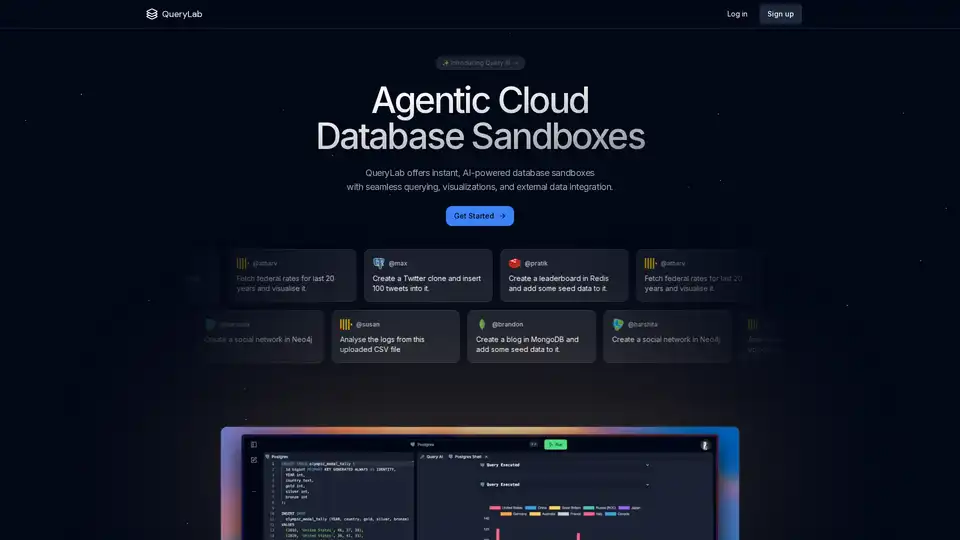
QueryLab provides instant AI-powered database sandboxes for querying, visualization, and external data integration. It simplifies data interaction using natural language and AI-driven automation.
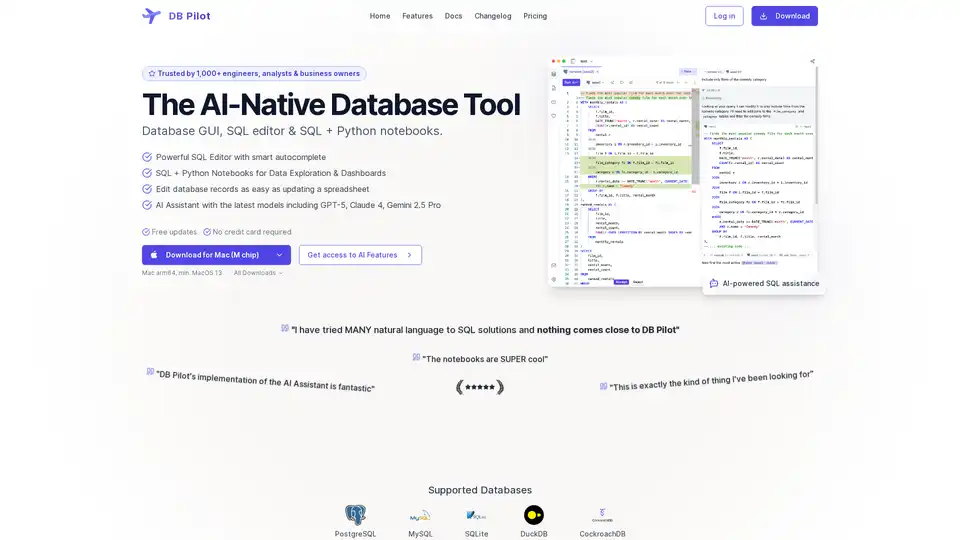
DB Pilot is an AI-native database tool offering a powerful SQL editor, SQL + Python notebooks, and an AI assistant with the latest models for faster and easier database work.
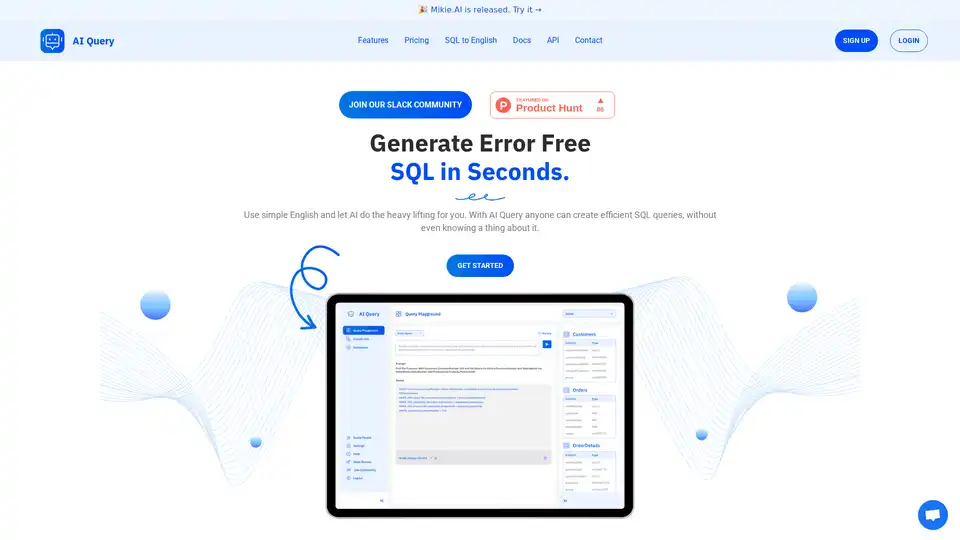
Generate SQL queries in seconds with AI Query. Use simple English prompts to create complex SQL. Powered by OpenAI GPT & Google PaLM 2. Start generating error-free SQL today!
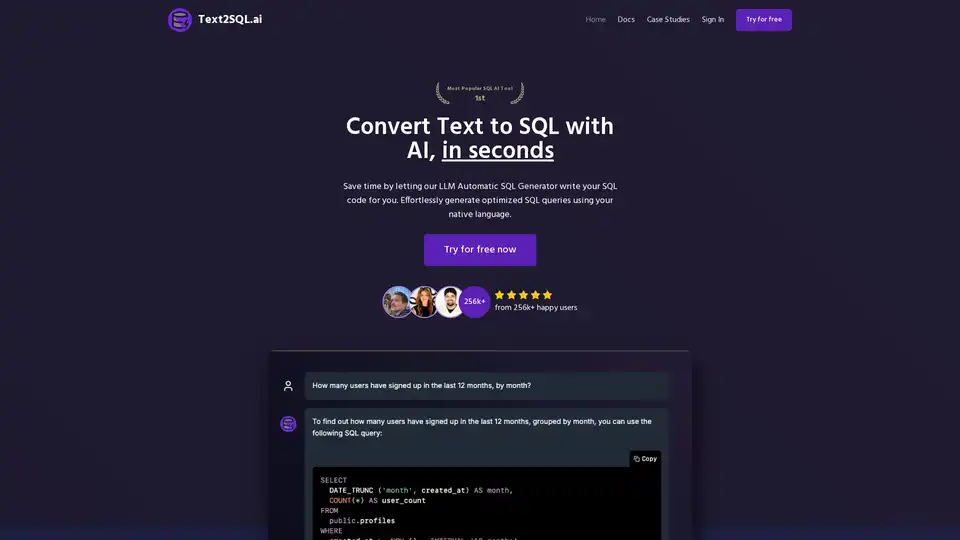
Text2SQL.ai is an AI-powered tool that converts natural language text into SQL queries. It supports multiple databases and offers features like schema integration for accurate and optimized SQL generation.
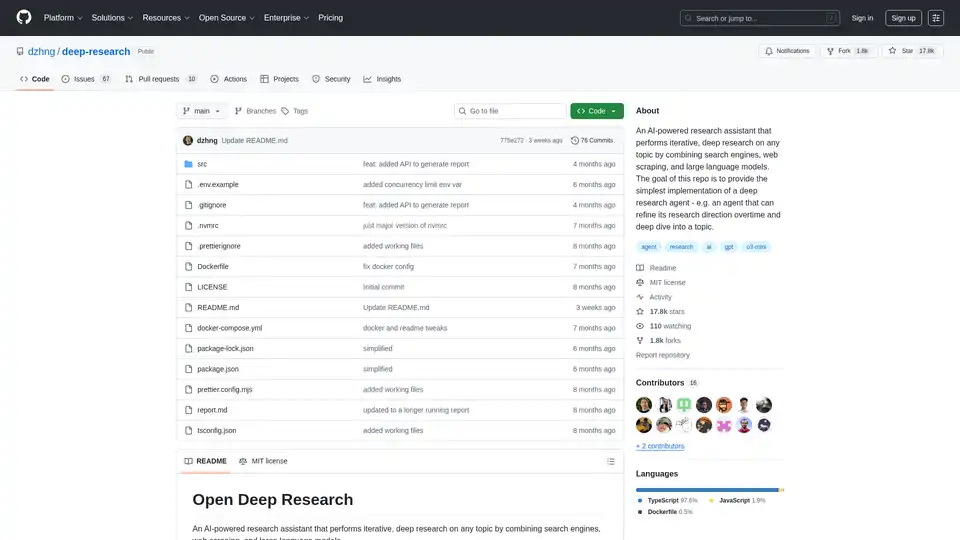
Deep Research is an AI-powered research assistant that combines search engines, web scraping, and LLMs for iterative, in-depth research on any topic. Simplifies deep dives with intelligent query generation and comprehensive reports.
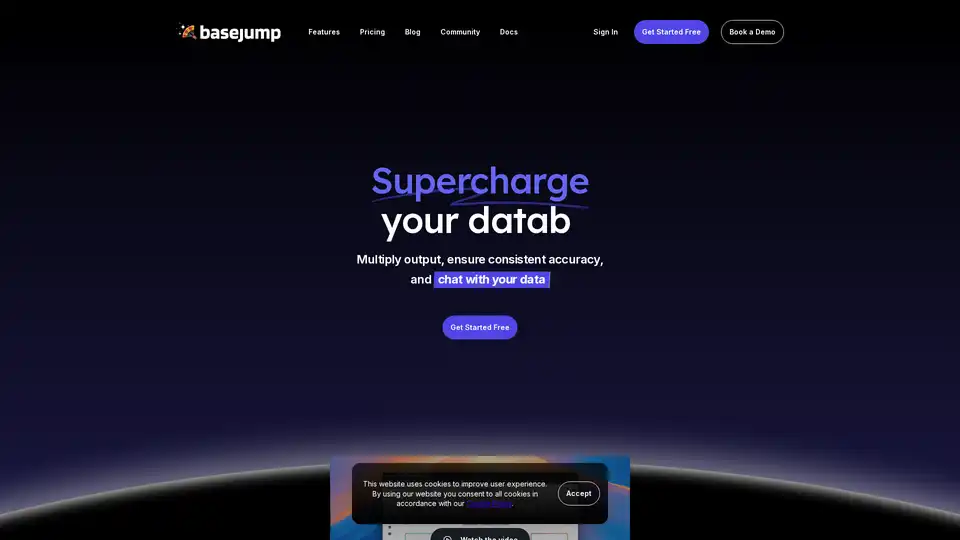
Basejump AI revolutionizes data analytics by enabling natural language conversations with your database. Get instant, accurate insights without SQL expertise through AI-powered query generation and data visualization.
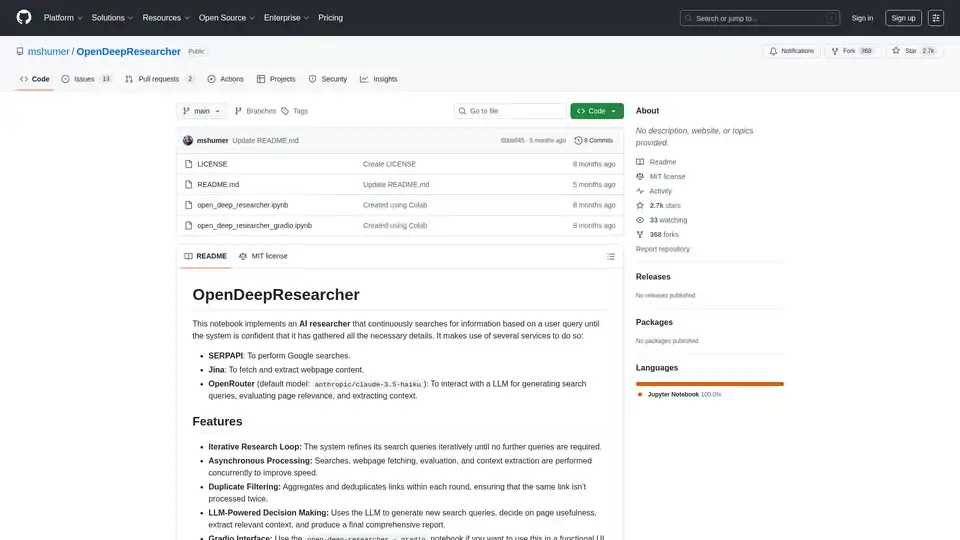
OpenDeepResearcher is an AI-powered tool that iteratively searches for information based on a user query using SERPAPI, Jina, and OpenRouter, delivering a comprehensive final report.
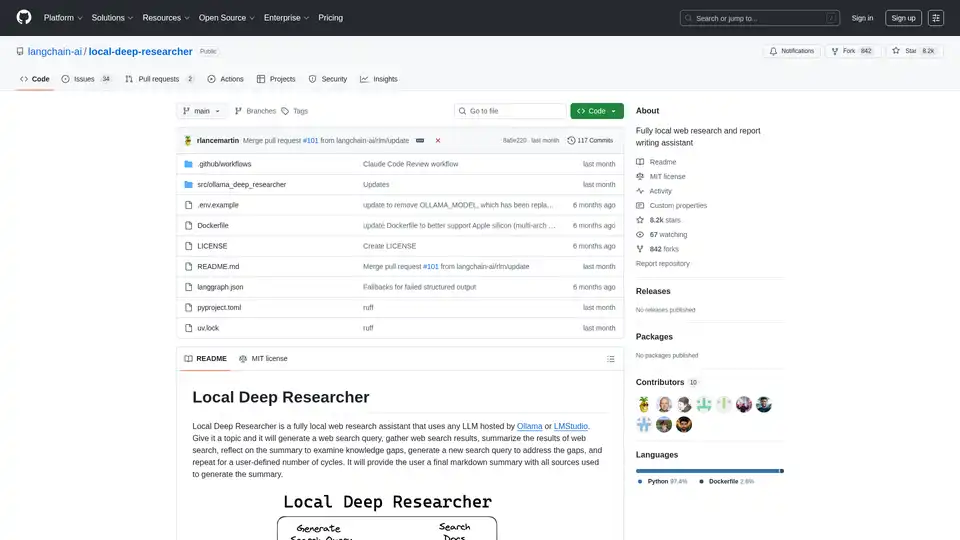
Local Deep Researcher is a fully local web research assistant that uses LLMs via Ollama or LMStudio to generate search queries, gather results, summarize findings, and create comprehensive research reports with proper citations.
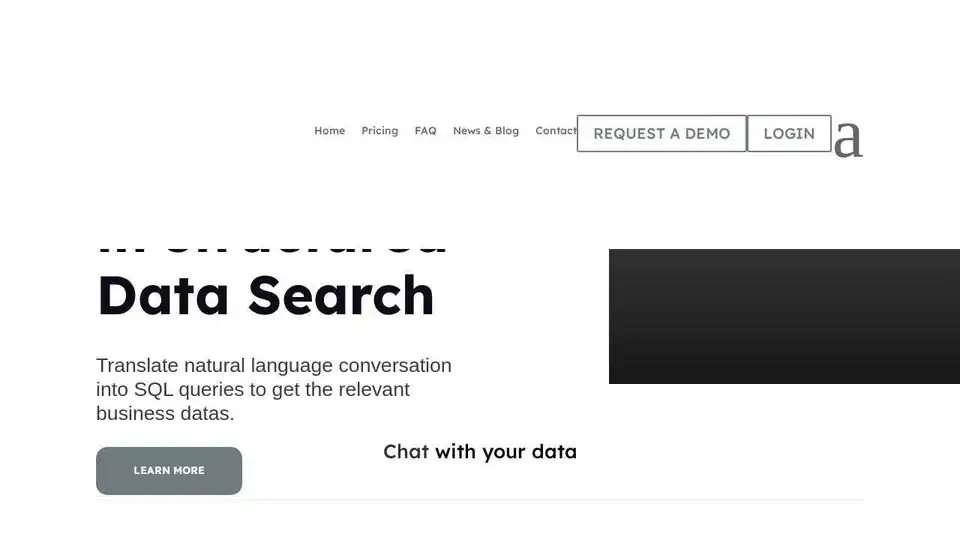
QueryX revolutionizes data search by translating natural language into SQL queries. Experience AI-driven insights for seamless data exploration. Ideal for business decision-makers.
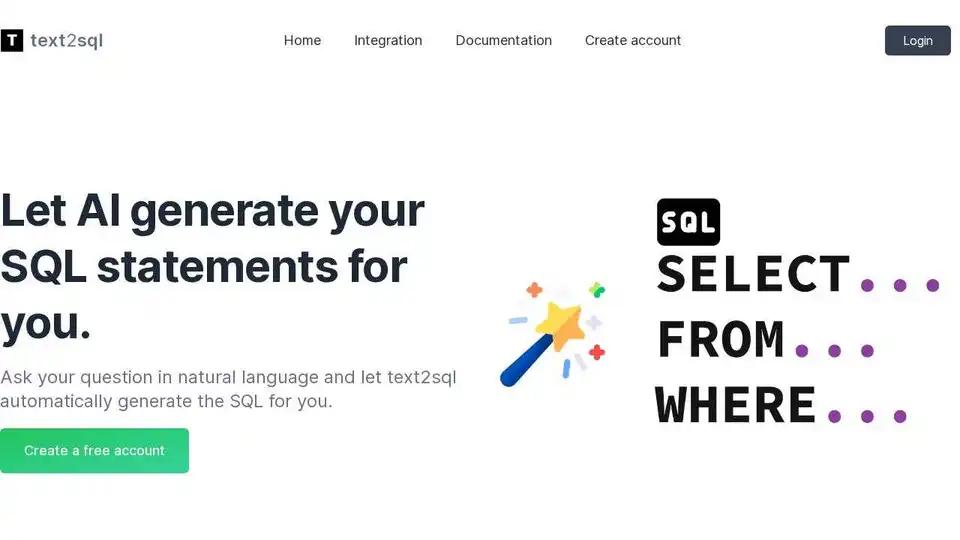
Generate SQL queries from natural language with text2sql. Simplify database interactions for engineers and non-engineers alike. Supports various SQL dialects and prioritizes data security.
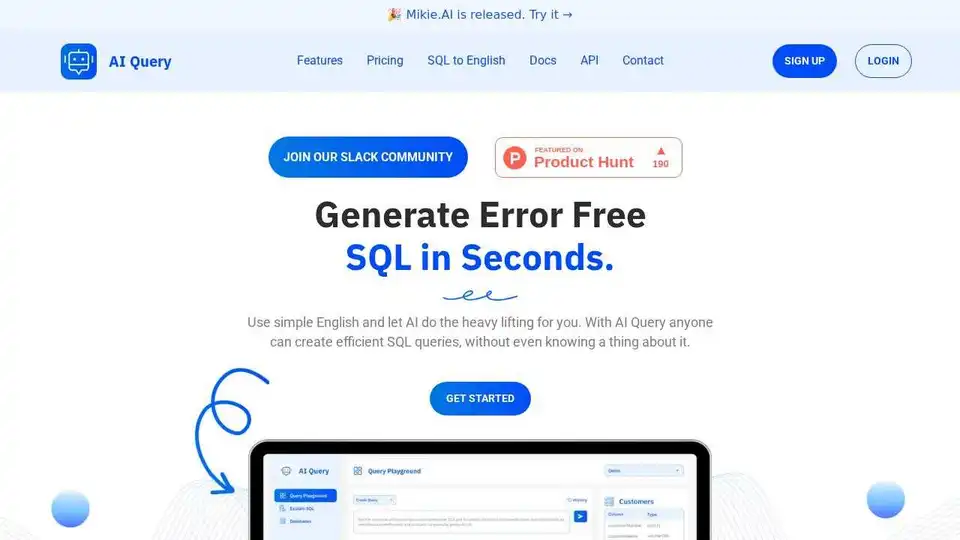
AI Query generates SQL queries from simple English prompts using OpenAI GPT & Google PaLM 2. It supports multiple database engines and allows users to define database schemas easily. Perfect for quick and efficient SQL creation.
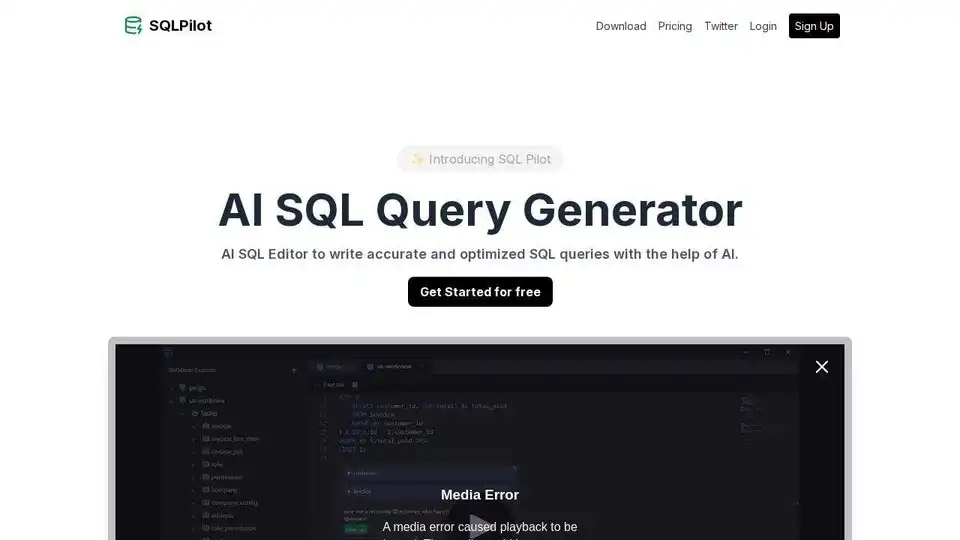
SQLPilot is an AI-powered SQL query generator that helps you write accurate and optimized SQL queries using natural language and knowledge base support. Supports PostgreSQL and MySQL.
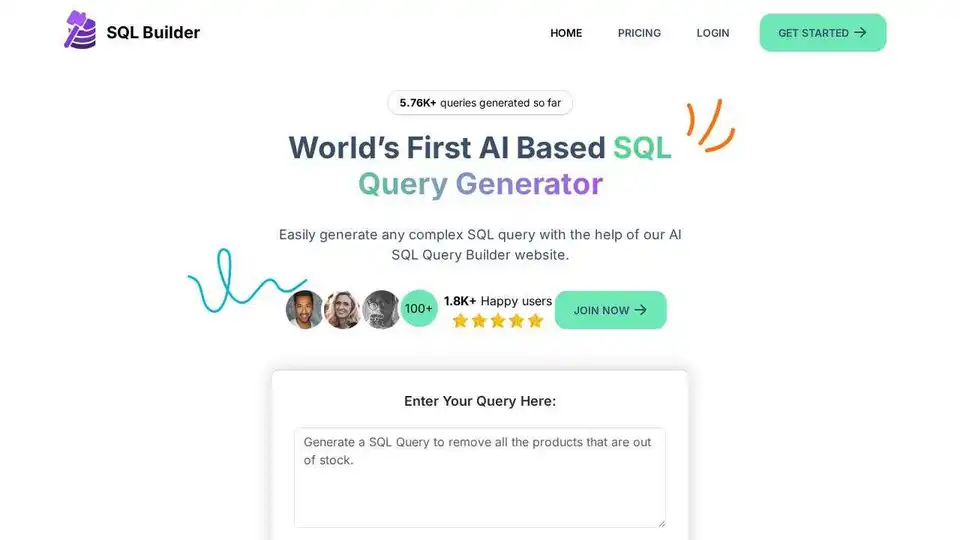
Generate SQL queries effortlessly with SQL Builder, an AI-powered tool. Optimize, format, and validate SQL without coding. Free trial available!
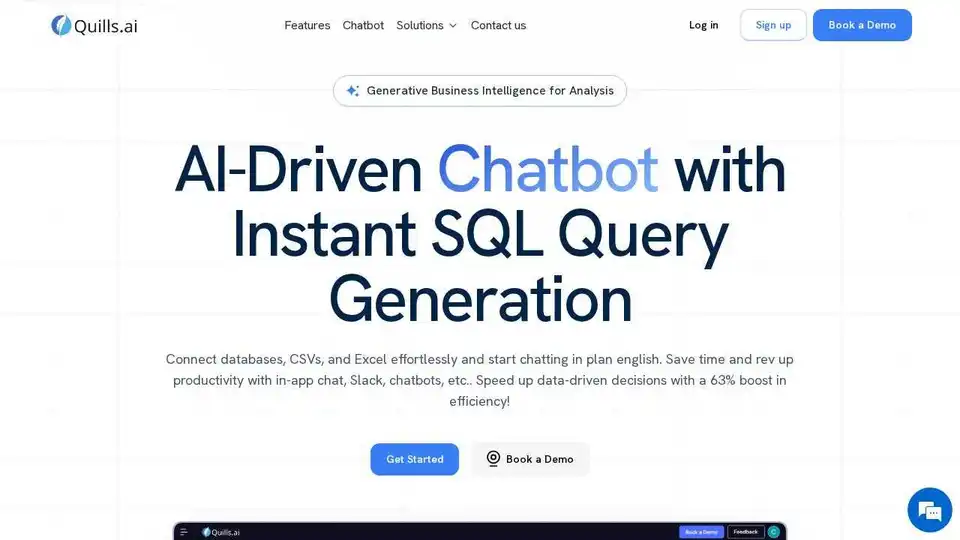
Quills AI: AI-powered platform for data analysis & visualization, generating SQL queries through natural language. Boost data-driven decisions and integrate with Slack.
